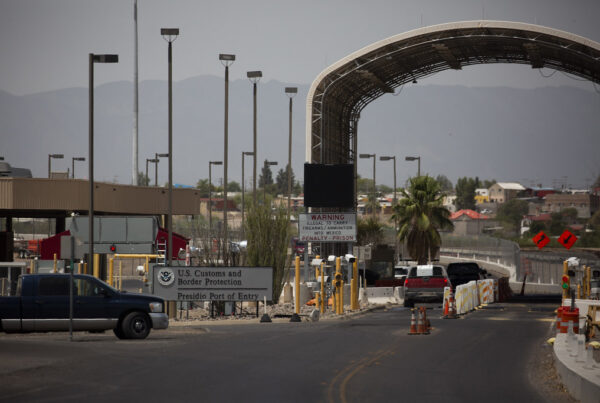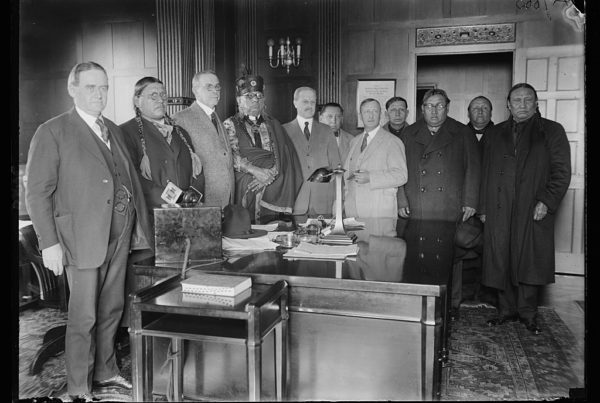From the Texas Tribune:
Lucy, a caseworker for Texas’ child welfare agency, sat in her car outside a major-chain hotel, readying for her work shift. She flipped through the pages of her blue Bible, the size of her palm, trying to find the compassion and will to go inside.
While much of the state was about to end the workday or thinking about dinner, Lucy would keep an eye on two kids in the foster care system.
Lucy recited Bible passages to herself as she made her way to the hotel room where the kids were staying. Her shift this evening would run until 8 p.m. Other weeks, they go until midnight or even 4 a.m.
“I’m literally praying that the kiddo is asleep so there’s no issues,” said Lucy, who would only speak to The Texas Tribune if her full name wasn’t used, out of fear of retaliation from the state agency. “If you’re working before 8 a.m., you’re not going to be able to get ahold of anybody to help you.”
Children whose home environments are determined to be unsafe or abusive end up in the hotels or offices when the Texas Department of Family and Protective Services cannot immediately find them a proper placement, like a psychiatric facility or a residential treatment center.
The kids, referred to within DFPS as children without placement, are often older teens with complex trauma and behavioral needs. Their caretakers are a revolving door of overworked caseworkers expected to administer medications, maintain a line of sight on the kids and do bed checks every 30 minutes when the children are sleeping. Property damage, verbal attacks and physical assault are recurrent during shifts monitoring children in unlicensed facilities, caseworkers told the Tribune.
There are nearly 20,000 kids in the state’s care. In fiscal year 2022, 1,242 children in the system spent at least one night in an unlicensed foster facility, like a hotel or office. On average, those children spent 15 nights in such places, according to a report from court-appointed watchdogs in a long-running federal lawsuit that has repeatedly slammed the practice.
These overnight shifts are the type of poor working conditions that are pushing DFPS employees to leave in large droves. Staff turnover at the agency is now at a record high, with nearly 1 in 3 employees leaving in fiscal year 2022.
Caseworkers, who make up the backbone of the Texas foster care system, told the Tribune that the conditions — like low staffing, low pay and burnout — jeopardize the quality of care they are able to provide to the state’s most vulnerable kids. The average salary for a caseworker is nearly $53,000.
“I’m not sure we can right this ship. We’ve lost so many tenured caseworkers,” Lucy said. “And these kids are wasting their life and time away … It’s having this trickle down effect of destruction.”
DFPS officials have publicly said they’re working to limit the number of children in unlicensed facilities by adding places where youth with complex mental and behavioral health needs can stay. But the agency is also facing a substantial loss in the number of beds available at licensed facilities. The agency could be held in contempt of court in the ongoing federal lawsuit because the lawyers suing the state argue the placement crisis creates unmanageable workloads for caseworkers and puts all kids in the state’s long-term care at risk.
Caseworkers are expected to sign up for overnight shifts to supervise children without placement as often as five times a month, according to Myko Gedutis, an organizer with Texas State Employees Union. That’s on top of their regular caseloads. The agency has said the shifts are voluntary, but according to Gedutis and caseworkers that spoke to the Tribune on the condition of anonymity, the agency will assign shifts if they do not volunteer.
“They say sign up for the shift that you want. Well, I don’t want any of them,” Lucy said. “I wouldn’t be doing this voluntarily because it’s such a mess. It’s so dangerous for everybody.”
When Lucy got to the hotel room this evening, the two kids were asleep. Lucy sat in the corner, reading through the kids’ files, checking the clock every so often, waiting for her shift to end.
During her prior overnight shifts, a young girl got violent with a coworker. Another child threw Lucy’s computer against the wall. She’s terrified of what’s next: “I haven’t been hit, kicked … my days are coming.”
Lucy has developed several physical health conditions since she started working for the state agency. If she is hurt during a shift, she worries she won’t be able to bounce back.
“I’m not a youngster. I can’t have somebody putting their hands on me like that,” she said.
Facing a contempt of court motion
Children sleeping in hotels and offices because of placement shortages have been at the center of a long-running federal lawsuit against the agency. In a January hearing, U.S. District Judge Janis Jack asked the state to commit to having zero children without placement by this past June.
The state evaded the question.
“I can commit that we will continue to put the same level of effort towards reducing those numbers,” DFPS commissioner Stephanie Muth said.














